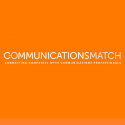The Confidence Paradox
“The whole problem with the world is that fools and fanatics are always so certain of themselves, and wiser people so full of doubts.” Bertrand Russell
As human beings we are attracted to confident people. If they're confident, they must know what they're doing, right?

In a complex world, we’re all looking for certainty. If we get answers to our questions, that’s great. We don’t have to think further and we’re likely to trust the answer.
Take the example of a doctor who diagnoses an upset stomach as a simple bug. For that moment, we feel we know what the problem is, can take the prescribed medication and move on. Until the medical issues don’t go away, and we’re back at the doctor’s, or in the hospital.
When people project confidence, especially if we believe they are "experts", like moths to a flame we are drawn to them. And often we get burnt.

In a recent TED Radio Hour focused on the spirit of inquiry, Kevin Jones, who diagnoses and performs surgeries to remove rare cancers, discussed the importance of knowing what you don’t know as the driver of asking questions and seeking out other opinions.
His approach (and that of the other featured scientists) is to be humble enough to recognize that he doesn’t have all the answers and that this is the key to learning. If this sounds familiar, it is. In Plato’s Apology, Socrates says, “I know that I know nothing.”

But that’s not how most of us act. Since confidence is what we as humans gravitate towards, we try to convey it, even in the absence of certainty or knowledge.
As communicators and consultants, there are important lessons to draw from these examples. Clients are initially attracted to confidence, but, as Warren Buffet famously said, they find who is swimming naked when the tide goes out.

For communications agencies or consultants, swimming naked means over-promising and under-delivering, and failing to listen or learn.
The paradox of confidence is that it’s what others expect of us, but it’s also something that may both lead us to over-state likely results and blind us from seeing the world in ways that are necessary to achieve our, or our clients’ goals.

Confidence can lead to tunnel vision – something that’s important to our ability to focus and get things done, but limiting to our perspective. As I argued in “Tunnels & Funnels: Why We Make Bad Decisions & How We Can Make Better Ones,” every now and again we need to stop and look up, recognize we’re in a tunnel and move into a funnel. Being in a funnel is about collecting more information and perspective before our focus drives us back into a tunnel.
Misplaced confidence has real consequences. When it comes to communications, those who promise the world to win business are, more often than not, tossed out the door when outcomes fall short.
At the same time, over-confidence may translate into a propensity to blame the client: Failure was because the spokesperson or company did a poor job – classic confirmation bias.
Being blinded by confidence is a "shame on us" moment for both clients and communicators. We have all instinctively followed the confident and been blinded by our own confidence.

Knowing this, it’s important for clients to resist the natural gravitation to confidence and seek out competence. The challenge is to identify and value professionals who recognize the complexity of the communications process with the results to show how they are able to navigate through it.
Agencies and consultants must be self-aware enough to acknowledge the balance required when it comes to confidence. Are you winning assignments only to find the clients walking out the door six months later, frustrated by the gap between promise and delivery? As a consultant, are you so confident in your expertise that you stop asking questions of the client about progress from their perspective, and simply tell them how good things are? And are you then surprised when they stop working with you? If so, you won’t be the first or last to fall prey to believing your own PR.
How do we ensure that we benefit from confidence and not fall victim to over-confidence? Like Socrates, we all need to ask questions of ourselves and others. Starting with what we don’t know is a powerful place to drive us to know more.
As business leaders, we need to implement thorough processes when hiing agencies, consultants, or people, check credentials, and slow down our natural inclination to hire as quickly as possible. By taking more time, we reduce the risk of buying into what can be the fools’ gold of confidence.
For agencies and consultants, conveying confidence based on competence, and being humble enough to admit what you don’t know about the client’s business or potential outcomes of communications programs is a balancing act. The benefit of demonstrating expertise by sharing realistic expectations that reflect the complexity of the real world, is, more often than not, strong, productive relationships, rather than recrimination, disappointment and damage to both personal reputations and that of the industry.
Read more on our Insights Blog, including: “Roadmap for Agency Search: Agency Search Checklist”, “Getting Your Agency Hired: What Clients Are Looking For - PR Expanded Blog”, “Thinking Outside the Box to Make Better Client Connections”.
